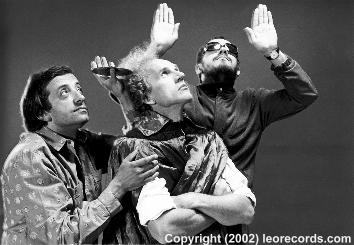Here, for your entertainment and listening pleasure, is an incredible collection of field recordings made by German ethnomusicologist,
Artur Simon, in the early 1970's in Northern Sudan. Once again we should extend our thanks to Joachim for switching us on to this one.
There are extensive liner notes contained in a booklet included with the
album so you can read those if you are interested to learn more about
the Nubian people, their culture, their music and these recordings.
Download a PDF of the booklet in English
HERE.
Download a PDF of the booklet in German
HERE.
Tracklist:
01 Dahab Khalil, Unknown Artist – Ay Fa Kir Noogonilla / Ich Werde Zu Deinem Haus Kommen / I Will Come To Your House
02 Mohammed Awad, Unknown Artist – Ajjibeeri Dessa Massoodta Daffo / Ich Möchte Wissen, Ob Die "Grüne" Schöne Fortgegangen Ist / I Wonder, If The "Green" Beautiful One Has Gone Away
03 Mohammed Awad, Unknown Artist – Tanzmusik Ohne Gesang Aus Mahas / Dance Music Without Singing From Mahas
04 Hussein Mohammed Ahmed Wagiya Allah – Waya-Logo Wayag Onnon / Von Waya / About Waya
05 Khalil Soliman, Salah Kurdi, Hassan Fagir, Ahmed Hassan – Dukka Mengimmi Ter Gedemga / Geh' Gemessenen Schritts / Walk Step By Step
06 Hassan Fagir – Beledeena / Von Meinem Dorf / About My Village
07 Unknown Artist – Belal Er Isampun? / Wohin Gehst Du, Meine Liebe? / Where Are You Going, My Love?
08 Unknown Artist – Tanzgesänge Auf Einer Hochzeit / Dance Songs At A Wedding
09 Hassan Mohammed Gamal, Mohammed Hassan Awad, Unknown Artist - Ollin Araglid / Händeklatschen Und Tanzen / Handclapping And Dancing
10 Soliman Abu Zeid, Mohammed Fadl Bilal, Ramadan Soliman, Hassan Ahmed Mohammed Ramadan, Ahmed Moheddin, Ahmed Merghanni – Allah Ya Saadu Leh / Allahs Wille Obsiegt / Allah's Will Prevails
11 Ali Ahmed Ali, Sayyed Ahmed Soliman, Garmal Ahmed Soliman, Abd El-Rahman – Wadi Halfa Woo Haniina / Wadi Halfa, Oh Mein Geliebtes Land / Wadi Halfa, Oh My Beloved Country
12 Hassan Fagir, Salah Kurdi, Khalil Soliman – Hm Bee
13 Unknown Artist – Hm Bee / Seera
14 Hassan Soliman Awad – Kalakiya
15 Abdin Osman Sheikh Idris, Hassan Hussein – Wo Karim Babuur Takona / Ich Möchte Wissen, Ob Der Dampfer Angekommen Ist / I Wonder If The Steamer Has Arrived
16 Ali Mohammed Abdallah – Gesang Über Ein Liebesabenteuer / Song About A Love-Affair
17 Salih Ali Soliman – Gesang Auf Dem Eskalee (Schöpfrad) / Song On The Eskalee (Water-Wheel) 18 Unknown Artist – Gesang Bei Der Feldarbeit / Song At Field Work
19 Zahra Osman Sherif – Wiegenlied / Lullaby Lo-Lo-Lo
20 Aziza Abdo Shergawi, Tamaya Said, Hogla Mohammed Idris – Lied Bei Beschneidungen Und Hochzeiten / Song At Circumcision And Wedding Ceremonies
21 Unknown Artist – Bellaal Ya Bellaal / Geliebter Held / Beloved Hero
22 Fatima Gasheila Sakina (2) – Wad Albatar Batraan Tood / Oh Sohn Der Tapfersten Aller Männer / Oh Son Of The Bravest Men Of All
23 Unknown Artist – Gashel, Gashelin Buru / Verwöhnte Tochter / Spoiled Daughter
24 Fatima Gasheila – Ambaabi Ay Yaaba / Oh Mein Geliebter Vater / Oh My Beloved Father
25 Zeinab Mohammed, Wahiba – Gesang Beim Kornmahlen Mit Den Mahlsteinen / Song While Grinding With Millstones
26 Fatma Farah Abbas Unknown Artist – Shergangallo / Laßt Uns Gen Osten Ziehen / Let Us Go Eastwards
27 Unknown Artist – Diya Wo Ailan / Es Ist Genug, Oh Mein Herz / It Is Enough, Oh My Heart
Get it
HERE.







































































.jpg)
























































